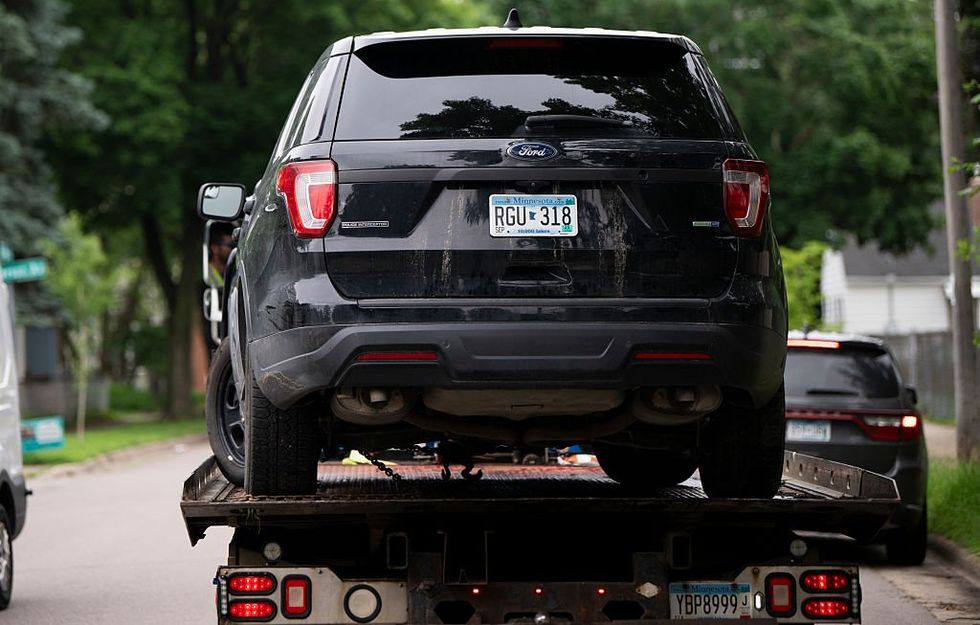We share in the grief over the weekend’s political violence that claimed the life of Rep. Hortman and her husband Mark, and our thoughts remain with Sen. Hoffman and his wife Yvette as they fight for their lives. This tragedy strikes at the heart of our democracy, threatening not just individual lives but the fundamental belief that people from different backgrounds can come together to solve problems peacefully.
The Minnesota shootings were not the only acts of political violence on June 14th. In Salt Lake City, gunfire shattered a peaceful "No Kings" protest, killing one demonstrator. In Austin, authorities evacuated the state Capitol under credible threats to lawmakers during another rally. In Culpeper, Virginia, a driver was arrested after driving into a crowd of protesters with his vehicle.
The pattern is unmistakable: Americans expressing their views—whether as elected officials or peaceful protesters—are being targeted with violence. This is not a partisan issue. It is a national emergency.
Over the years, The Fulcrum has covered the rise of political violence in America—from Charlottesville to the murder of George Floyd, from the January 6th attack on the Capitol to the 2024 assassination attempt on then-presidential candidate Donald Trump. The common thread in each of these tragedies is the abandonment of dialogue in favor of domination.
As Americans, we must stand united in rejecting violence as a tool of political expression. The overwhelming majority of Americans condemn political violence, and our leaders must reinforce this norm not just in words but through decisive action. Violence and intimidation must never become the cost of leadership. Elected office is public service, not a battlefield.
In times of crisis, leaders' words shape how communities respond. We echo the guidance we published last year in The Fulcrum’s piece, “How Leaders and the Media Talk About Political Violence Matters,” by Jennifer Dresden and Laura Livingston. Leadership—especially in moments like this—must model responsibility, restraint, and resolve. The principles they outlined then are no less vital today, and they guide our leadership of The Fulcrum. Condemnation is not enough. We must also ask:
- Are leaders swiftly and unequivocally condemning violence?
- Are they resisting the urge to vilify entire groups or dehumanize political opponents?
- Are they guiding public anger toward constructive, democratic action?
This moment is a stress test for the nation’s moral compass. Will we allow fear and violence to shape our political future, or will we recommit to the democratic values that have sustained us through darker hours than this? Will we demand our leaders uphold words and actions that stand up to violence?
People often say that political violence is un-American. While it’s true that violence is woven throughout American history, it’s also true that the American identity has always been aspirational. The time to reach for better is now. Our democracy cannot survive if participation becomes a death sentence.
We call on Americans—citizens, leaders, and media alike—to turn this grief into a galvanizing moment. Let us protect protestors. Let us safeguard elected officials. Let us ensure that disagreement is met with dialogue, not gunfire.
As Barack Obama said, “We can disagree without being disagreeable.” And in the words of the late Sen. John McCain at the 2004 Republican National Convention: "We are Americans first, Americans last, Americans always. Let us argue our differences. But remember, we are not enemies."
For the victims in Minnesota, the murdered protester in Utah, and every citizen who either exercised their democratic rights on June 14th or stood in solidarity with those who did: we must do better. Democracy's future depends on the choices we make today.
David Nevins is co-publisher of The Fulcrum and co-founder and board chairman of the Bridge Alliance Education Fund.
Kristina Becvar is co-publisher of The Fulcrum and executive director of the Bridge Alliance Education Fund.
SUGGESTION: Manhunt in Minnesota Following “Politically Motivated” Shootings
 A vehicle belonging to Vance Boelter is towed from the alley behind his home on June 14, 2025 in Minneapolis, Minnesota. Boelter is a suspect in the shooting of two Democratic-Farmer-Labor lawmakers. (Photo by Stephen Maturen/Getty Images)
A vehicle belonging to Vance Boelter is towed from the alley behind his home on June 14, 2025 in Minneapolis, Minnesota. Boelter is a suspect in the shooting of two Democratic-Farmer-Labor lawmakers. (Photo by Stephen Maturen/Getty Images)



















Trump & Hegseth gave Mark Kelly a huge 2028 gift